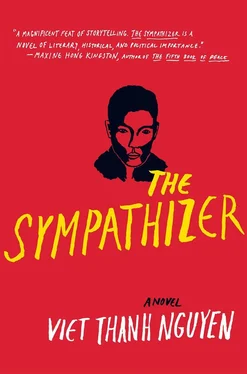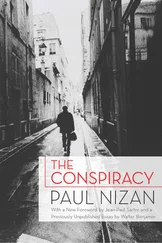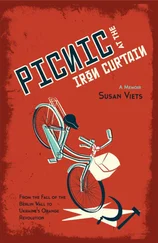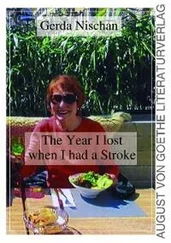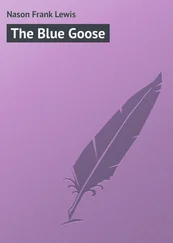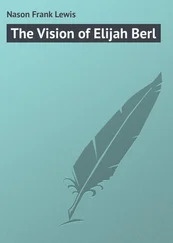As no one on the faculty possessed any knowledge of our country, the Chair enjoyed engaging me in long discussions of our culture and language. Hovering somewhere between seventy and eighty years old, the Chair nestled in an office feathered with the books, papers, notes, and tchotchkes accumulated over a lifetime career devoted to the study of the Orient. He had hung an elaborate Oriental rug on his wall, in lieu, I suppose, of an actual Oriental. On his desk facing anyone who entered was a gilt-framed picture of his family, a brown-haired cherub and an Asian wife somewhere between one-half and two-thirds his age. She was not exactly beautiful but could hardly help but look beautiful next to the bow-tied Chair, the tight neck of her scarlet cheongsam squeezing the bubble of a smile to her frosted lips.
Her name is Ling Ling, he said, seeing my gaze rest on the picture. Decades of hunching over a desk had bent the great Orientalist’s back into the shape of a horseshoe, thrusting his head forward in the inquisitorial fashion of a dragon. I met my wife in Taiwan where her family had fled from Mao. Our son is considerably bigger now than in that picture. As you can see, his mother’s genes are more resilient, which is not to be unexpected. Blond hair fades when mixed with black. He said all this during our fifth or sixth conversation, when we had achieved a certain degree of intimacy. As usual, he reclined in an overstuffed leather club chair that enfolded him like the generous lap of a black mammy. I was equally enveloped in the chair’s twin, sucked backward by the slope and softness of the leather, my arms on the rests like Lincoln on his memorial throne. A metaphor to explain the situation is available in our own Californian landscape, he continued, where foreign weeds choke to death much of our native foliage. Mixing native flora with a foreign plant oftentimes has tragic consequences, as your own experience may have taught you.
Yes, it has, I said, reminding myself that I needed my minimum wage.
Ah, the Amerasian, forever caught between worlds and never knowing where he belongs! Imagine if you did not suffer from the confusion you must constantly experience, feeling the constant tug-of-war inside you and over you, between Orient and Occident. “East is East and West is West, and never the twain shall meet,” as Kipling so accurately diagnosed. This was one of his favorite themes, and he had even concluded one of our meetings by giving me a homework assignment to test Kipling’s point. I was to take a sheet of paper and fold it in half vertically. On the top, I was to write Orient on the left and Occident on the right. Then I was to write down my Oriental and Occidental qualities. Imagine this exercise as an indexing of yourself, the Chair had said. My students of Oriental ancestry inevitably find this beneficial.
At first I thought he was playing a joke on me, since the day he gave me the task was the first of April, the occasion for that funny Western custom called April Fools’ Day. But he was looking at me quite seriously and I remembered that he did not have a sense of humor. So I went home and after some thought came up with this:
ORIENT
OCCIDENT
self-effacing
occasionally opinionated
respectful of authority
sometimes independent
worried about others’ opinions
now and then carefree
usually quiet
talkative (with a drink or two)
always trying to please
once or twice have not given a damn
teacup is half empty
glass is half full
say yes when I mean no
say what I mean, do what I say
almost always look to the past
once in a while look to the future
prefer to follow
yet yearn to lead
comfortable in a crowd
but ready to take the stage
deferential to elders
value my youth
self-sacrificial
live to fight another day
follow my ancestors
forget my ancestors!
straight black hair
limpid brown eyes
short (for an Occidental)
tall (for an Oriental)
somewhat yellowish white
somewhat palish yellow
When I shared this exercise with him the next day, he said, Splendid! A fine beginning. You are a good student, as all Orientals are. Despite myself, I felt a small surge of pride. Like all good students, I yearned for nothing but approval, even from fools. But there is a drawback, he continued. See how so many of the Oriental qualities diametrically oppose the Occidental? In the West, many Oriental qualities unfortunately take on a negative cast. This leads to the severe problems of identity suffered by Americans of Oriental ancestry, at least those born or raised here. They feel themselves out of place. They are not so different from yourself, also split down the middle. What, then, is the cure? Is the Oriental in the West to feel forever homeless, a stranger, a foreigner, no matter how many generations lived on the soil of Judeo-Christian culture, never able to do away with the Confucian residue of his ancient, noble heritage? This is where you, as the Amerasian, offer hope.
I knew he meant to be kind, so I did my best to keep a straight face. Me?
Yes, you! You embody the symbiosis of Orient and Occident, the possibility that out of two can come one. We can no more separate the physical Oriental from you than we can separate the physical Occidental. Likewise with your psychic components. But while you are out of place today, in the future you will be the average! Look at my Amerasian child. A hundred years ago, he would have been seen as a monstrosity, whether in China or in America. Today, the Chinese would still see him as anomalous, but here we have made steady progress forward, not as fast as you or I would like, yet enough to hope that when he reaches your age no opportunity will be denied him. Born on this soil, he could even be president! There are more of you and he than you can probably imagine, but most are ashamed and seek to disappear in the foliage of American life. But your numbers are growing, and democracy gives you the best chance of finding your voice. Here you can learn how not to be torn apart by your opposing sides, but rather to balance them and benefit from both. Reconcile your divided allegiances and you will be the ideal translator between two sides, a goodwill ambassador to bring opposing nations to peace!
Me?
Yes, you! You must assiduously cultivate those reflexes that Americans have learned innately, in order to counterweigh your Oriental instincts.
I couldn’t help myself any longer. Like yin and yang?
Exactly!
I cleared my throat of a sour taste, the gastric reflux of my confused Oriental and Occidental insides. Professor?
Hmm?
Would it make any difference if I told you I was actually Eurasian, not Amerasian?
The Chair regarded me kindly and took out his pipe.
No, dear boy, absolutely not.
On the way home, I stopped off at the grocery store and bought white bread, salami, a plastic liter of vodka, cornstarch, and iodine. I would have preferred rice starch for sentiment’s sake, but cornstarch was easier to obtain. Once home, I put away the groceries and stuck the paper with my divided self to the refrigerator. Even poor people in America had refrigerators, not to mention running water, flush toilets, and twenty-four-hour electricity, amenities that even some of the middle class did not have back home. Why, then, did I feel poor? Perhaps it had something to do with my living situation. Home was a dismal one-bedroom, first-floor apartment whose most characteristic feature was the pervasive odor of belly lint, or so I wrote to my aunt. On that day as on every day previously, I found Bon listless with grief on the long tongue of our red velour sofa. The only time he left was to tend to his part-time night job as janitor for the Reverend R-r-r-r-amon’s church, which aimed to save money while saving souls. To that end, and proving that one could serve God and Mammon at the same time, the church paid Bon his wages in untaxable cash. With no reportable income, Bon was eligible for welfare, which he received with only a marginal degree of shame and a considerable sense of entitlement. Having served his country for a pittance, fighting an American-determined war, he sensibly concluded that welfare was a better reward than a medal. He had no choice but to accept his lot, for no one had a need for a man who could jump out of airplanes, hump thirty miles with eighty pounds of kit, nail a bull’s-eye with pistol and rifle, and absorb more punishment than one of those masked and oiled professional wrestlers on television.
Читать дальше
